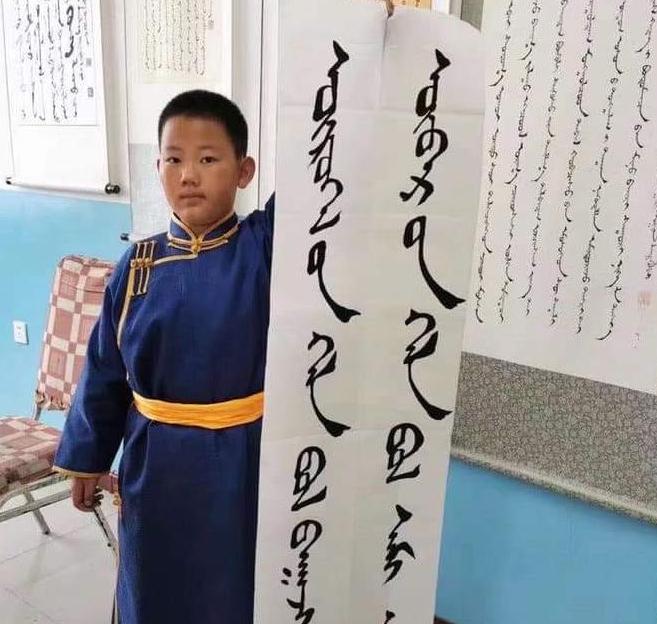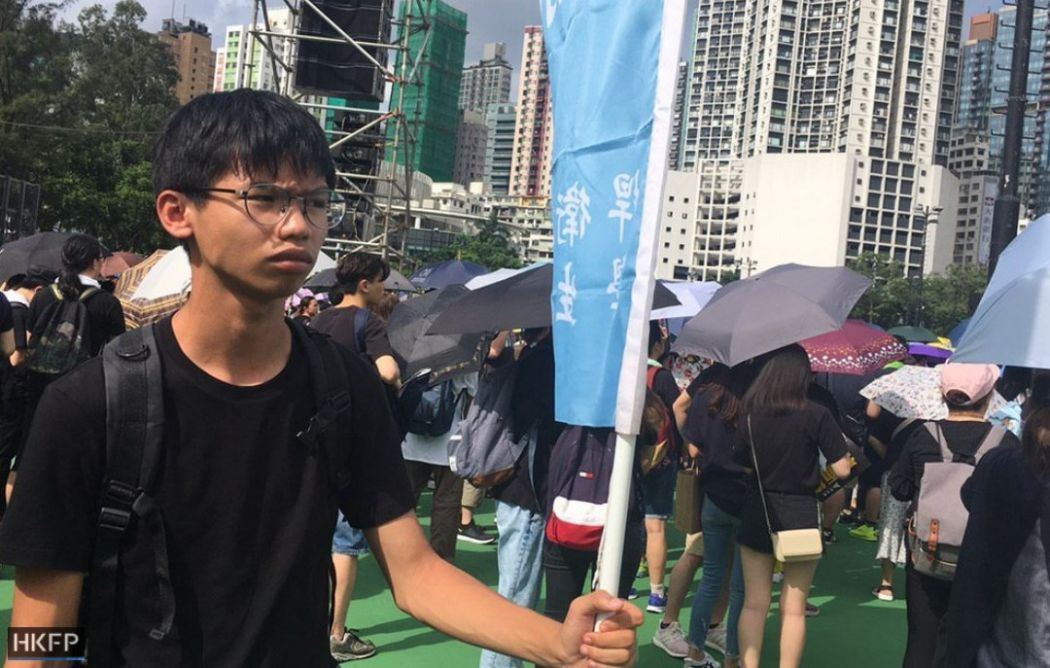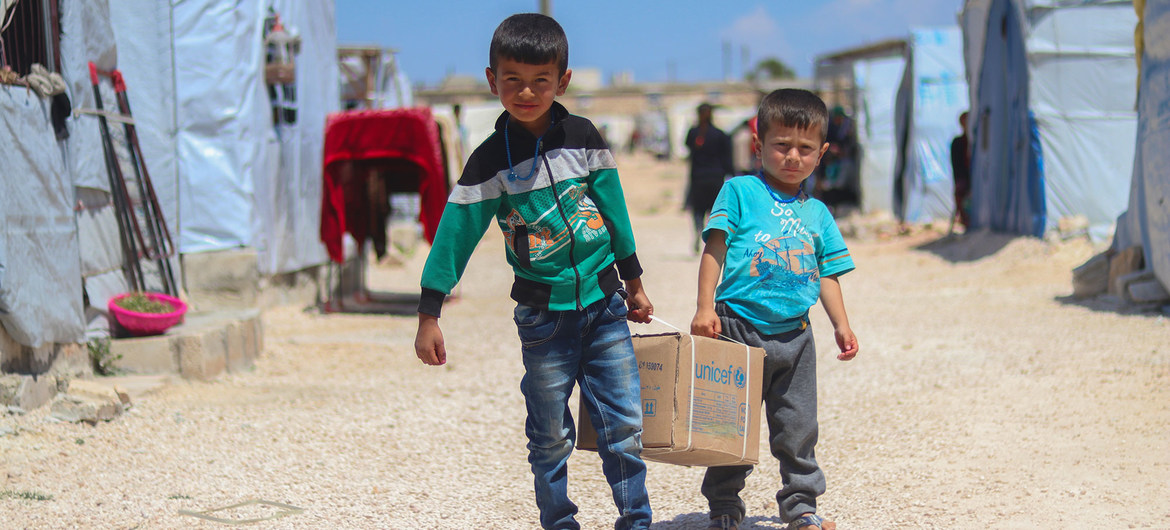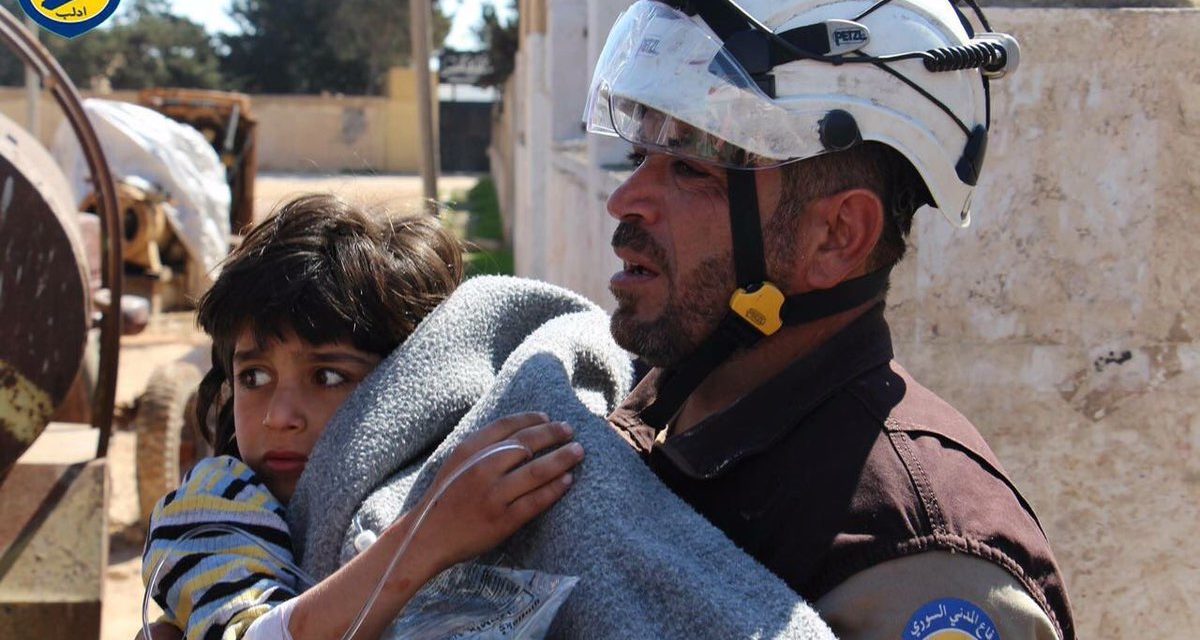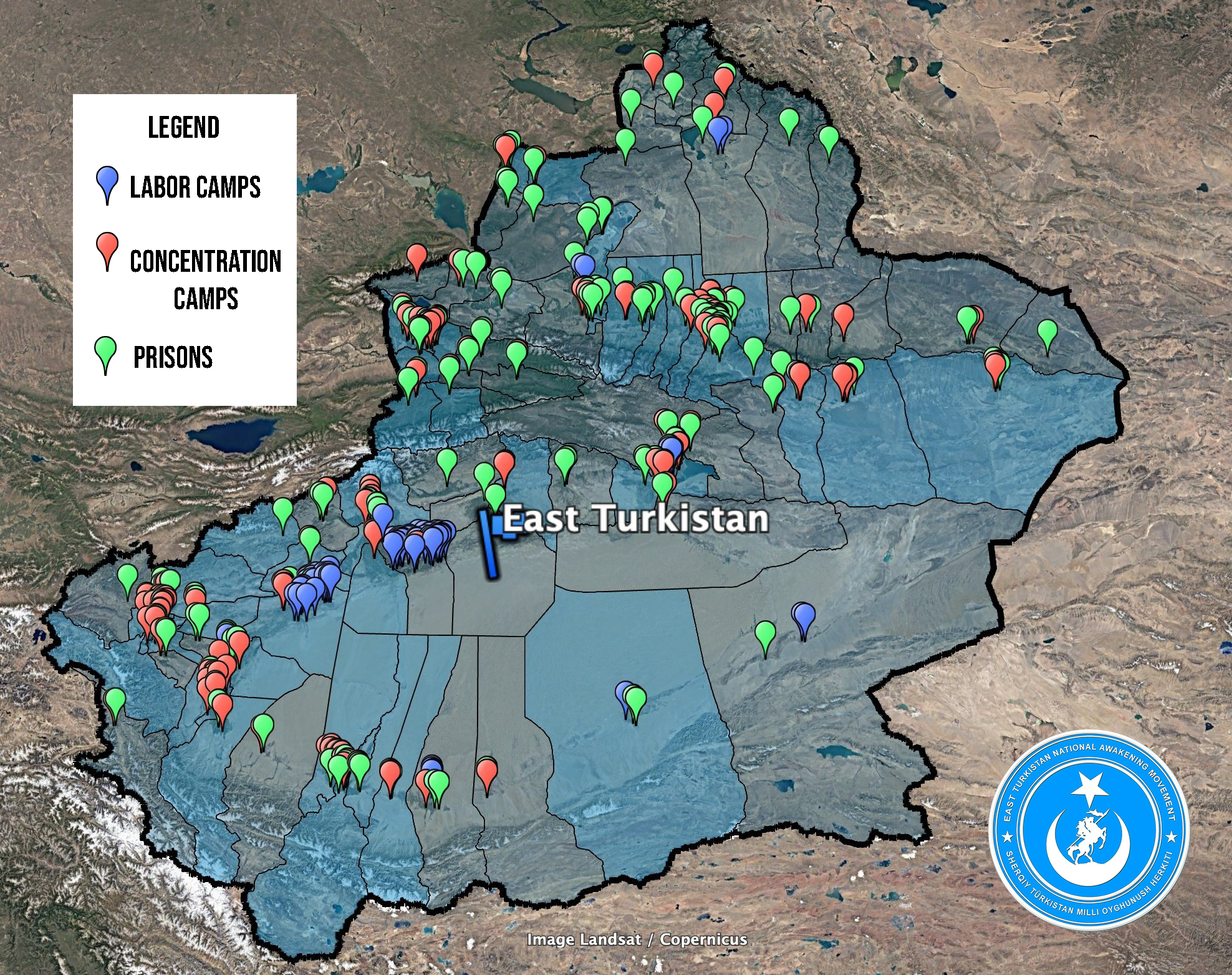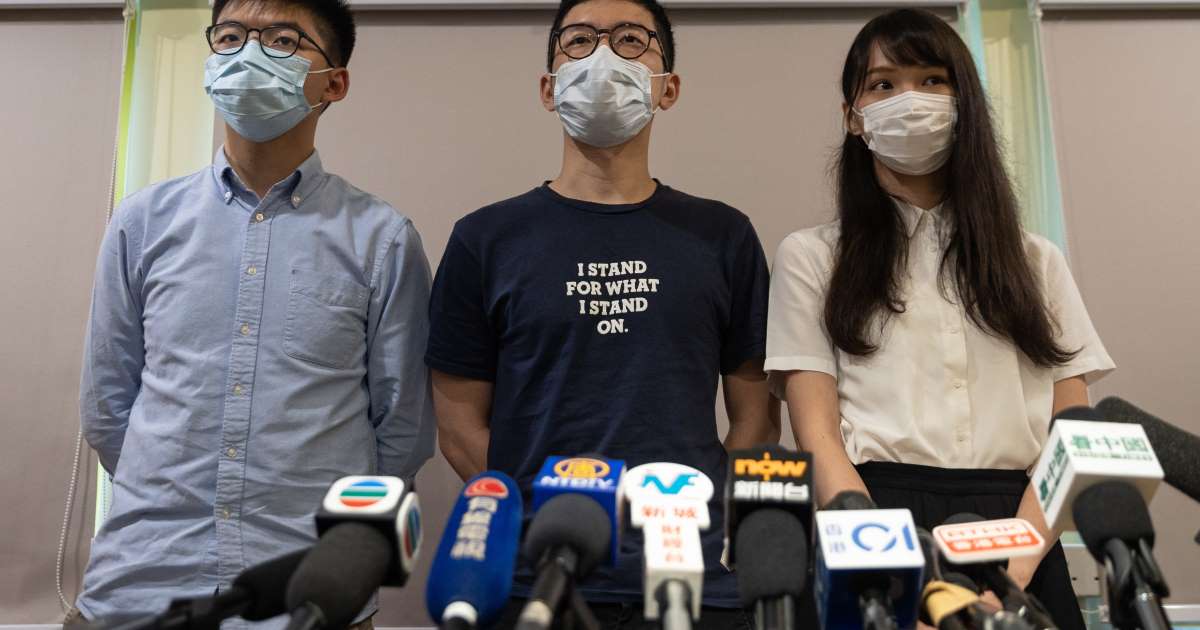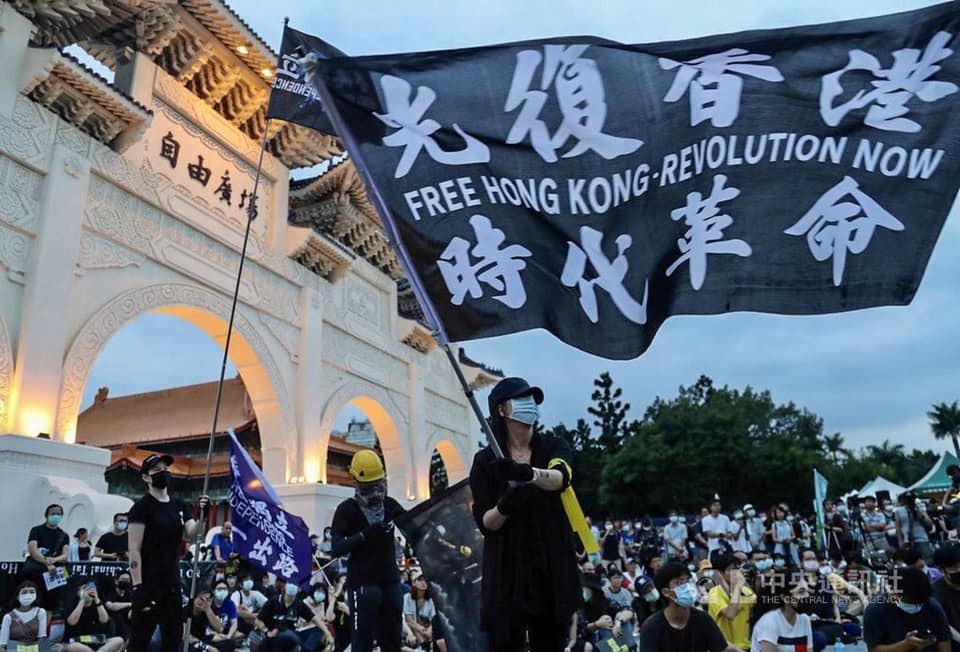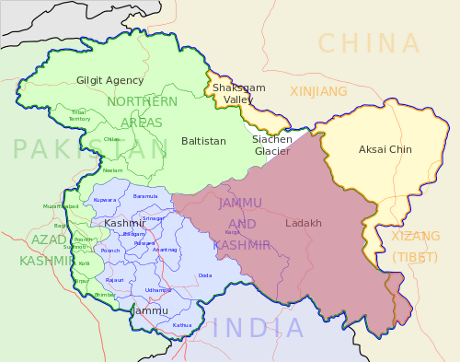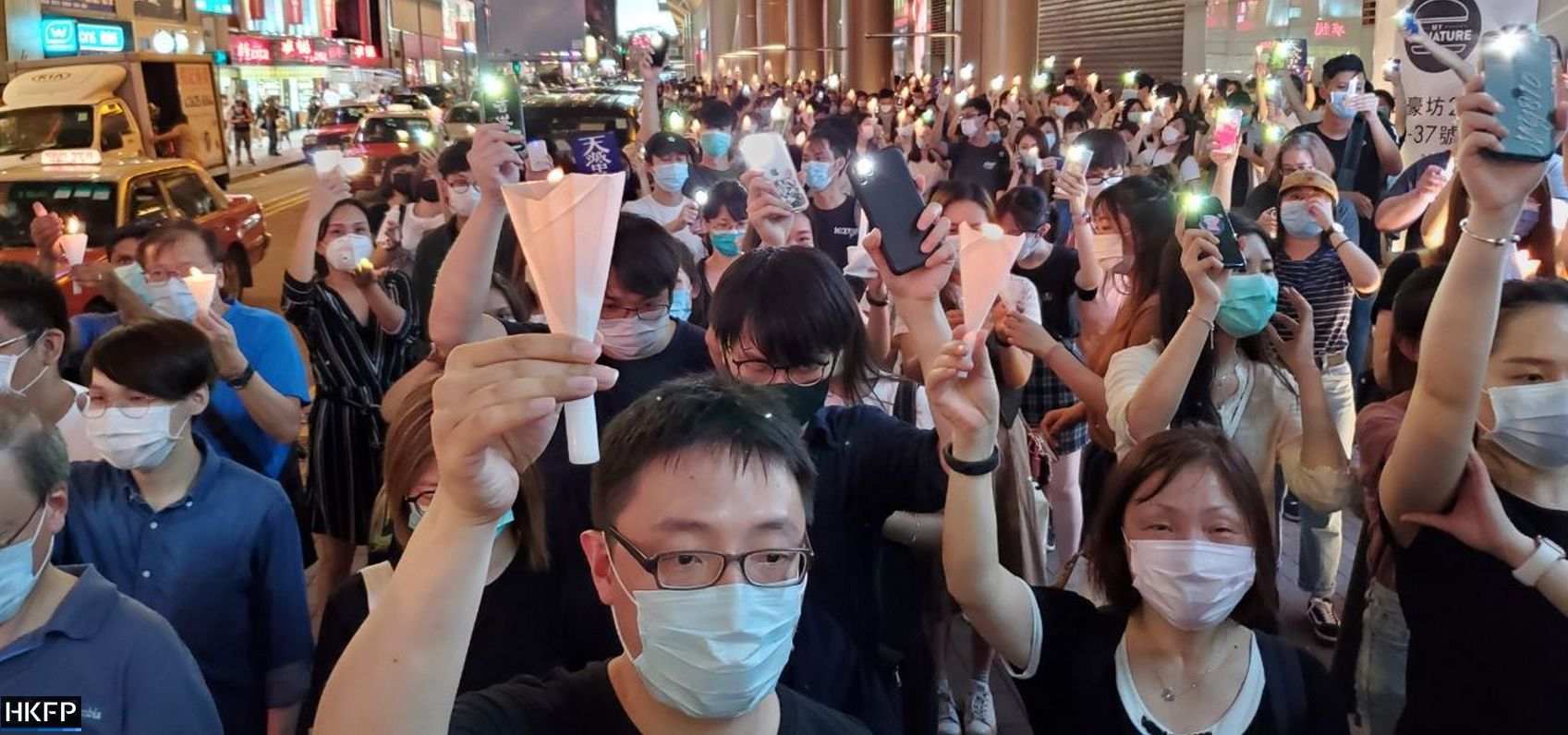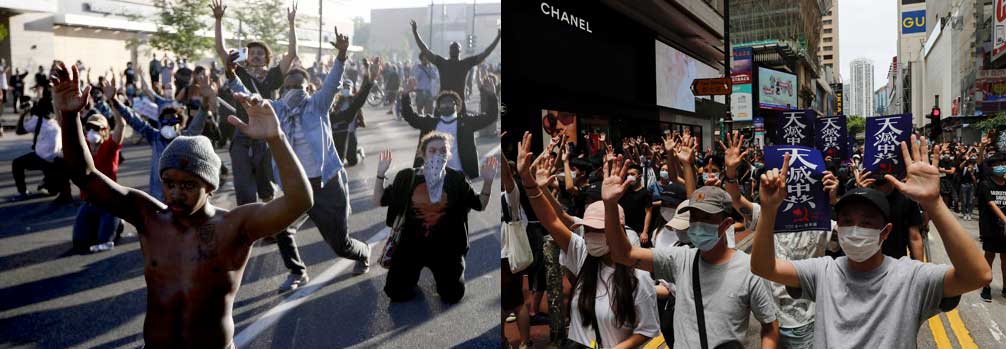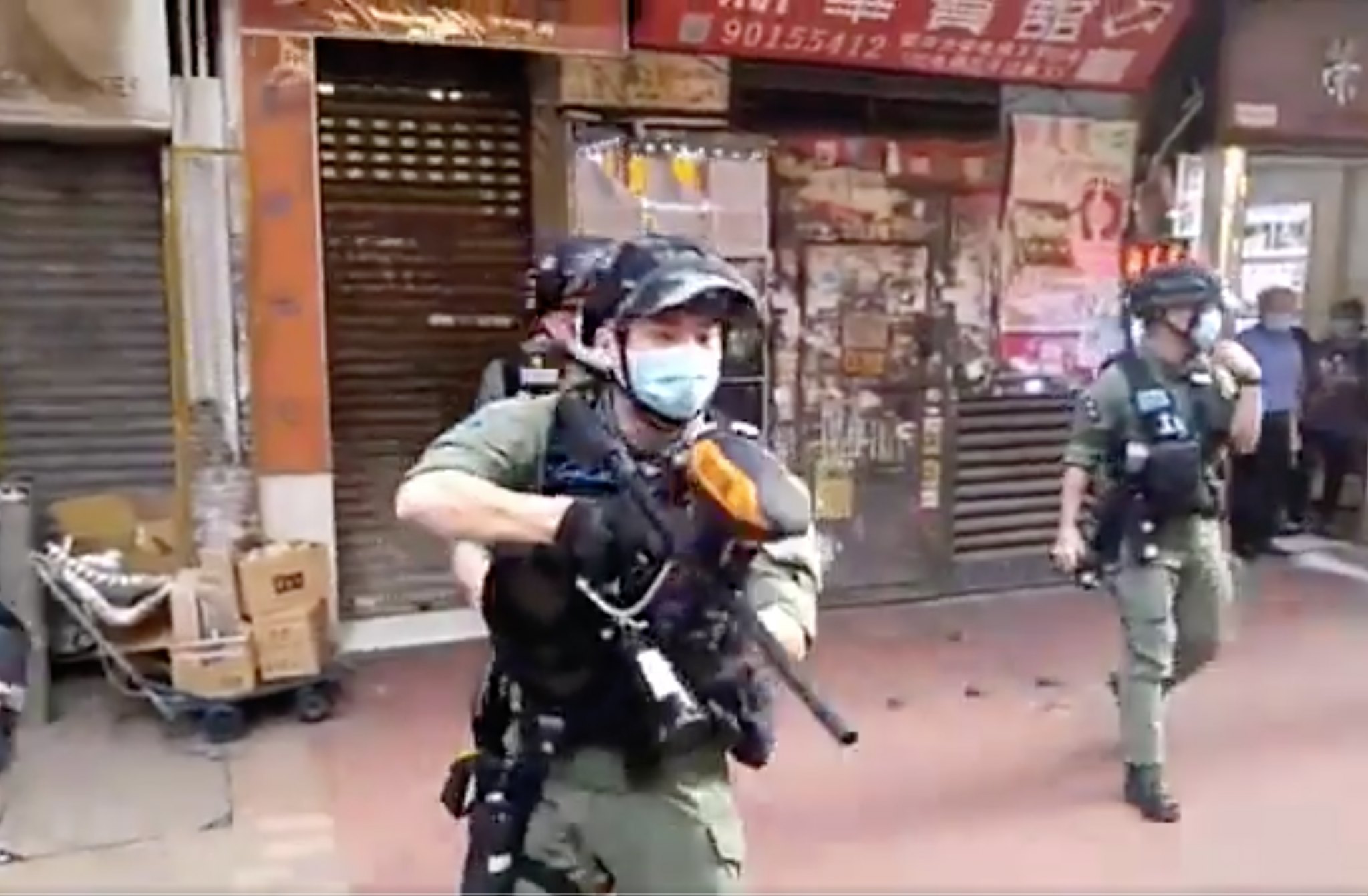
Hong Kong protesters defy ban and repression
On the day Hong Kong’s Legislative Council elections were originally scheduled before being postponed under pandemic emergency measures, hundreds of protesters defied a ban on street demonstrations to march in opposition to the postponement and the new National Security Law. Some 300 were arrested, and police fired tear-gas and pepperballs to disperse the crowd in Yau Tsim Mong district of Kowloon. Days earlier, the UN special rapporteur for Counter-Terrorism and Human Rights Protection, Fionnuala Ni Aolain, and six other UN experts jointly sent a letter to the Chinese government stating that the National Security Law “infringes certain fundamental rights,” and expressing concern that the law may be used to prosecute political dissidents in Hong Kong. (Photo: Studio Incendo)



